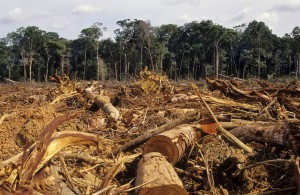
A report by the People’s Union for Civil Liberties, a human rights organization, and Bahutva Karnataka, a civil society group based in Karnataka, stated that during the last ten years, the Bharatiya Janata Party (BJP)-led National Democratic Alliance (NDA) has significantly changed laws and policies concerning the environment, and natural resources have been plundered like never before in India’s history.
Together, the two organizations claimed that the Union government has been avoiding environmental assessments and has been silencing environmental activists who draw attention to the unsustainable nature of development in their report, “Guarantee Check: State of India’s Environment over the last decade – An exacerbating crisis.” The article used the Environmental Performance Index, which shows that while India climbed to the 63rd rank in the World Bank’s Doing Business report in 2019 from the 142nd place in 2014, it fell to the bottom of the list—180th—in 2022.
Rapid clearances and dilution of laws
The Ministry of Environment reportedly granted 12,496 permissions in 2022—including clearances for Coastal Regulation Zones, Wildlife, Forests, and Environment—as compared to just 577 approvals in 2018. According to the research, a number of laws and policies, including as the Forest Conservation Act of 1980, the Mines and Minerals Act of 2023, and the Environment Impact Assessment (EIA) Notification of 2006, were altered to benefit private industrialists.
According to the research, there have been numerous amendments made to the protections provided by the Environment Impact Assessment (EIA) Notification, 2006, such as the confiscation of the requirement for public input prior to giving clearances that benefited private industries and promoted unsustainable development.
The Mines and Minerals Act, in 2023, was also diluted to ease out mining clearances and licences opening up more opportunities for the private sector. “A massive onslaught on account of mining has affected the rights of the Adivasis living there and destroyed age-old forests in the eastern states of Odisha, Chhattisgarh, and Jharkhand,” a statement said.
The report also referred to the amendment made to the Forest Conservation Act, 1980, in 2023, which attempted to change the definition of forests and could have been detrimental to several forest areas that were previously granted protection under the law. Although the Supreme Court (SC) intervened and read down the definition, approximately 25% of India’s forested areas are at risk, the report said.
According to the reports, the government rejected less than 1% of forest clearances between 2014 and 2020, which allowed for the diversion of forests for non-forestry use and so facilitated deforestation. Between 2014 and 2023, the forest land lost to industries and developmental projects totalled 1.5 lakh hectares.
The report also highlighted the amendments made to the Coastal Regulation Zone (CRZ) Notification of 2011. In 2019, for instance, the CRZ notification reduced the ‘No Development Zone’ alongside the sea to 50 metres from the previously mandated 200 metres, thereby opening up the coasts for commercial constructions. It noted that projects such as the Great Nicobar Island (GNI) project, which aims to allocate 130 square kilometres of forest area for infrastructure development, including the construction of an airport, have been fast-tracked by the ruling government.
Curbing down environmental activists
Henri Tiphagne, national working secretary of the Human Rights Defenders Alert-India, who was quoted in the report, environmental activists in Jharkhand, Chhattisgarh, and Odisha have been subjected to unlawful arrests and had their phones confiscated. A police shooting claimed the lives of six environmental activists who were protesting against the Vedanta plant in Thoothukudi, Tamil Nadu.
The article cited, the government threatened to impose internet bans and online surveillance on three volunteer-run environmental groups that opposed the Environmental Impact Assessment (EIA) Notification in 2020. It also pointed to the arrest of 22-year-old climate activist Disha Ravi, who supported farmers’ protests against farm laws in Delhi, in 2021.
Such action by the government highlight the lack of policies meant to safeguard environmental activists, established by the National Human Rights Commission (NHRC), Henri said.
